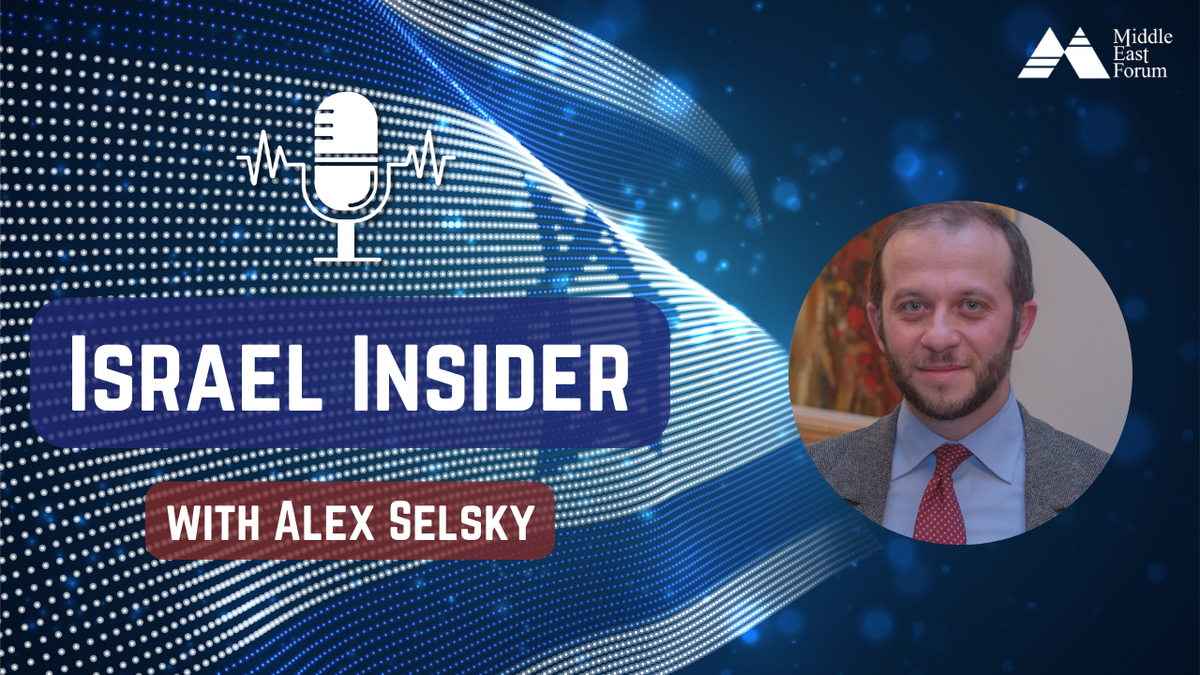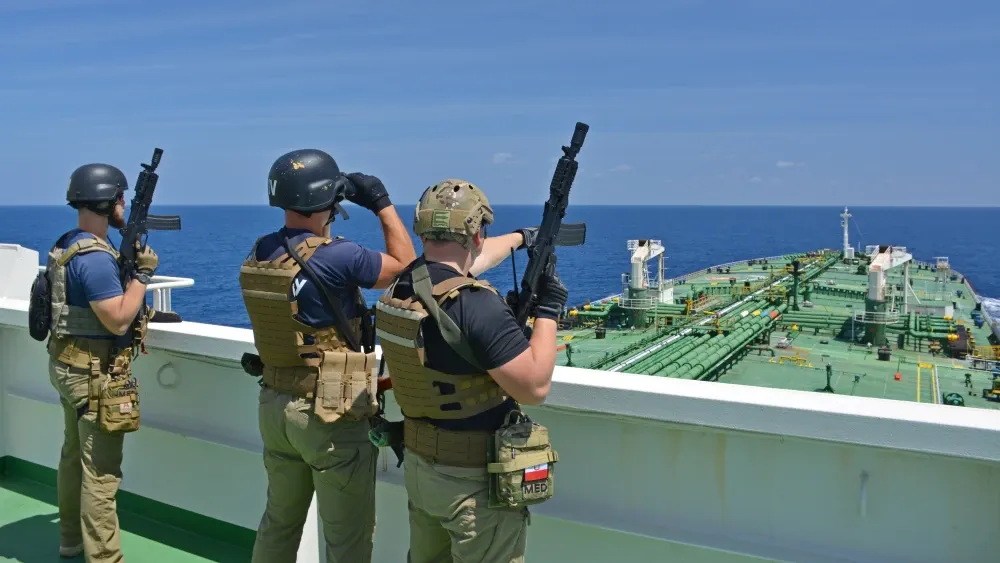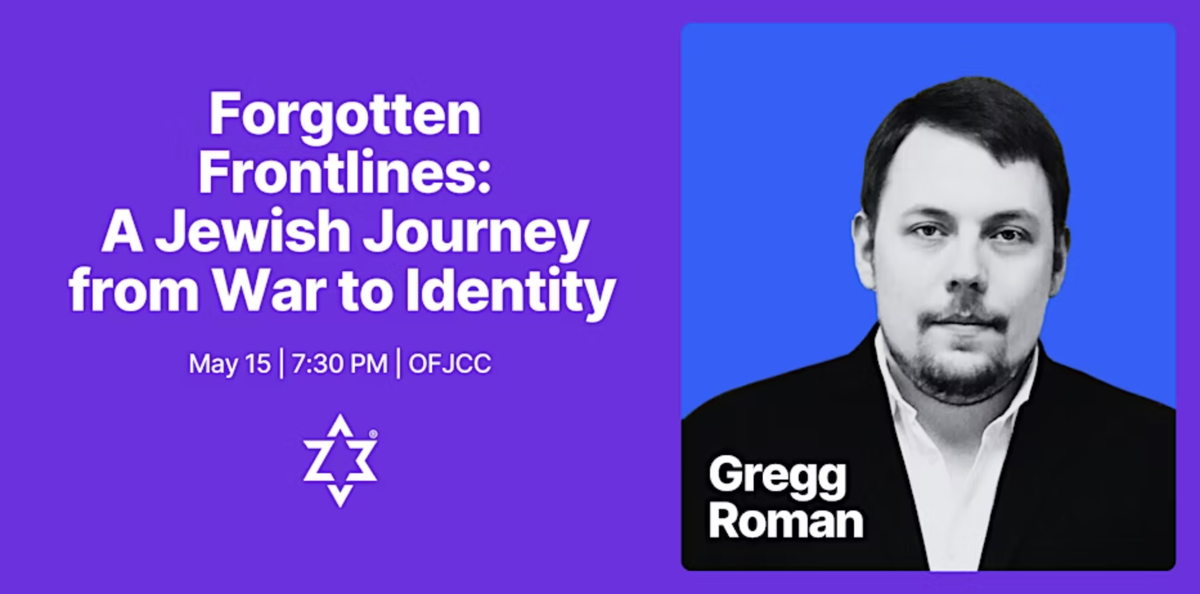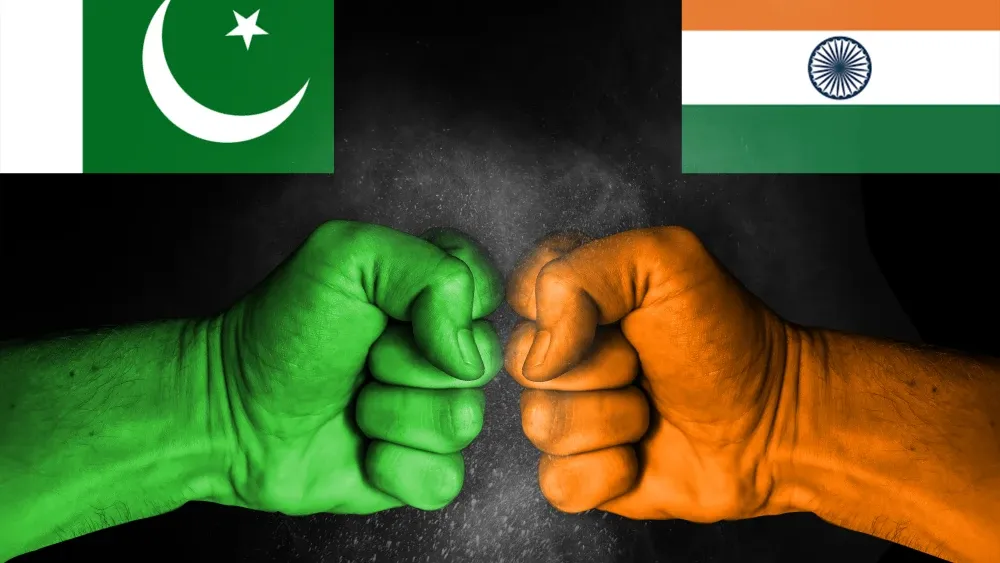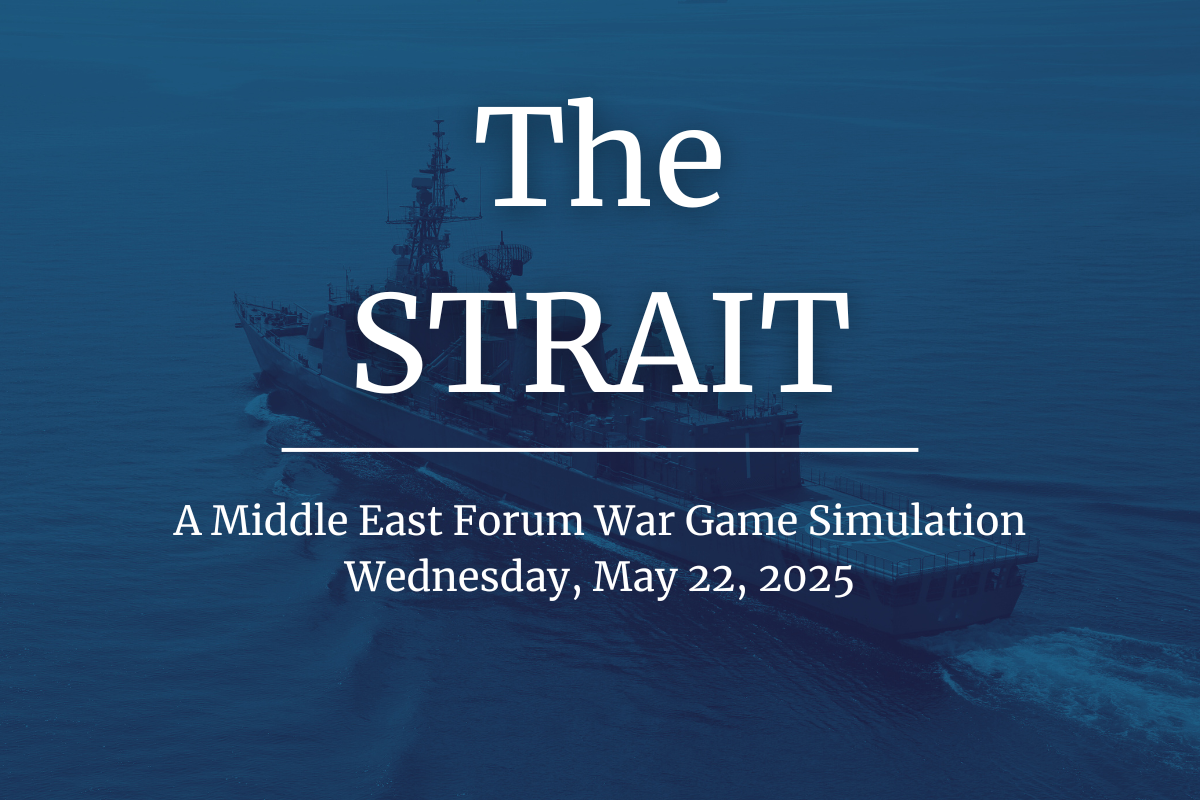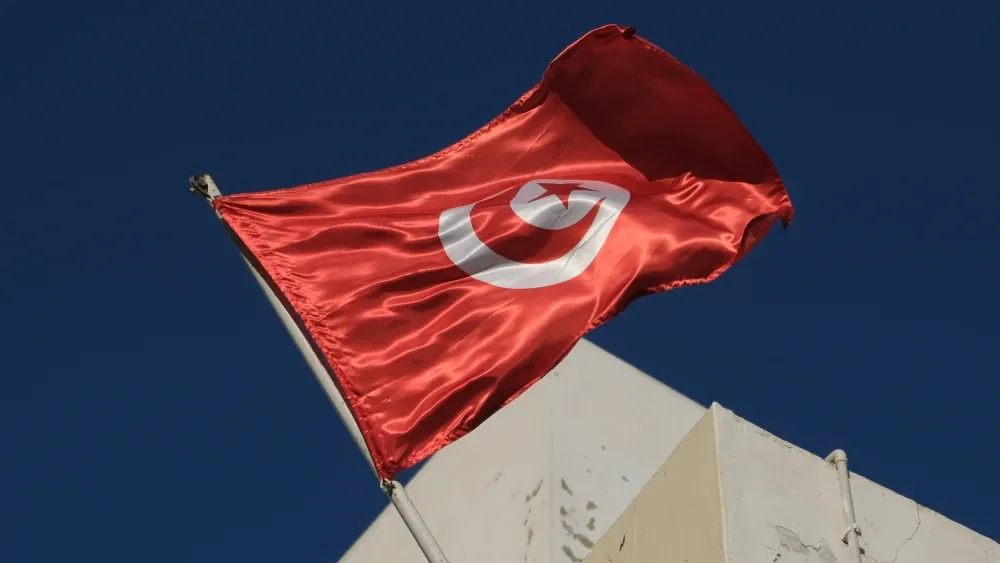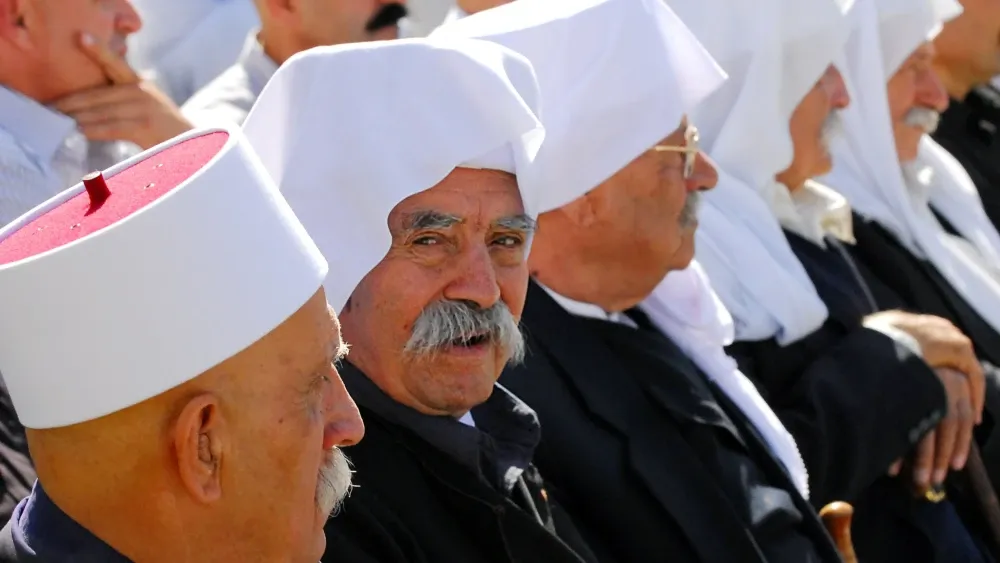| ||
 | ||
| A Houthi Ceasefire?; Pakistan's Terrorists; Tunisia on the Edge; Don't Be Fooled by Syria's Suited Islamists By Winfield Myers ● May 10, 2025 Smart Brevity® count: 7.5 mins...1972 words Eric Navarro advises that the recently-announced ceasefire with the Houthis means little until and unless Iran terminates its support for its proxy. Arun Anand warns that Pakistan’s years-long practice of harboring terrorists risks destabilizing the region. Tunisia’s increasingly authoritarian regime means that, for its people to light the region on fire again, writes Amine Ayoub, “all that’s needed is a match.” And Giulio Meotti laments the willful blindness of Europeans who refuse to see the dangers of Islamist violence, whether in Syria directed against the Druze, or at home in their own streets. | ||
ICYMI: Israel Insider with Alex SelskyThe Knesset's summer session has opened, bringing with it battles over the coalition's stability. What's on the agenda, and what are Netanyahu's biggest political landmines? Alex Selsky is a senior adviser to the Israel Victory Project and serves on the board of directors of Middle East Forum-Israel. Mr. Selsky currently serves as a reserve major in the IDF Homefront Command emergency information unit. He is also a lecturer at the School of Politics and Journalism at Hadassah Academic College in Jerusalem. Previously, Mr. Selsky served as an advisor to Prime Minister Benjamin Netanyahu, spokesperson for the Israeli National Economic Council, member of the board of governors of the Jewish Agency for Israel, member of the executive board of the World Zionist Organization, and CEO of the International Israel Beytenu Movement. He holds a B.A. in Business and an Executive Master of Public Policy from the Hebrew University of Jerusalem. To watch the full podcast, click here. | ||
The Houthi Ceasefire Is Not the EndPresident Donald Trump declared on May 6, 2025, that relentless strategic pressure has forced the Houthis to halt their attacks on commercial shipping. Why it matters: This outcome underscores the unyielding effectiveness of a decisive military stance and strategic clarity.
Strategic next steps: The Trump administration should escalate its approach, merging economic warfare with political and informational dominance to dismantle Iran’s proxy influence in Yemen.
Diplomatic ultimatum: Tehran’s proxy warfare cannot continue unchecked while it seeks any nuclear negotiations.
The stakes: Failure to act decisively will embolden Tehran and other adversaries, risking broader regional instability.
To read the full article, click here. | ||
Event: Forgotten Frontlines: A Jewish Journey from War to Identity with Gregg RomanWhen: In this compelling talk, Mr. Roman will share his journey from his early years in suburban Pennsylvania to his transformative time on Israeli frontlines, in the Knesset and within influential policy organizations. Drawing on firsthand experiences that span physical war zones and the more insidious battlegrounds of antisemitic rhetoric, Roman argues that the U.S. Jewish community is the "forgotten front" in a global struggle for Jewish identity. To register for the event, click here. | ||
Statecraft Reimagined 2025 - Registration Deadline May 11!The last day to register for MEF’s 2025 Statecraft Reimagined policy conference is Sunday, May 11. Register now to reserve your spot! Statecraft Reimagined will gather leading experts and policymakers to discuss the most urgent and complex issues shaping the future of the Middle East. This extraordinary event is poised to be the premier Middle East policy gathering in D.C. this year, offering unparalleled insights, networking, and strategic guidance. We also invite you to participate in ‘The Strait,’ an immersive and interactive war game simulation on May 22. Navigate a crisis in the Strait of Hormuz, facing cyber threats and diplomatic challenges. Sharpen your strategic skills, network with experts, and shape the outcome. To register for the conference, click here. | ||
India’s ‘Operation Sindoor’ Exposes How Pakistan Has Been Harboring TerrorismWith public outrage mounting over the killing of 26 civilians in Pahalgam, Kashmir, by Pakistan's proxy terrorists, the Indian armed forces launched Operation Sindoor, striking terror infrastructure in Pakistan. Why it matters: This military response highlights India's resolve to confront terrorism at its roots, challenging Pakistan's denial and complicity.
Background: The roots of Pakistan’s support for terror trace back to the contested 1947 accession to India of Jammu and Kashmir, where Pakistani-backed groups have long targeted Indian territory.
What’s next: India has intensified diplomatic and economic measures against Pakistan, including suspending the Indus Water Treaty and severing diplomatic ties.
The stakes: Pakistan's ongoing support for terrorist networks risks escalating into a broader security crisis, threatening regional and global stability.
To read the full article, click here. | ||
The STRAIT: A Middle East Forum War Game Simulation - Wednesday, May 22We are pleased to invite you to THE STRAIT, a one-day war game simulation hosted by the Middle East Forum on May 22, 2025. This immersive event places you in the heart of a hypothetical crisis in the Strait of Hormuz—one of the world’s most strategically vital maritime chokepoints. Why Attend? Realistic Scenario: Confront cyber threats, naval standoffs, and diplomatic showdowns in a setting that reflects modern-day regional tensions.Expert Leadership: MEF staff, backed by a team of regional and security specialists, will guide you through this high-stakes exercise.Hands-On Experience: Hone your crisis management, negotiation, and decision-making skills in real time.Networking: Engage with policymakers, analysts, and thought leaders who share a passion for Middle East affairs and global security. What to Expect: Confidential Briefings: Before the event, you’ll receive exclusive background materials outlining the forces at play—from Iran’s growing asymmetric capabilities to Saudi Arabia’s advanced military power.Interactive War Game: Take on the role of a key actor—whether it’s a regional state, a global superpower, or a critical stakeholder—and decide how to respond as tensions mount.Strategic Outcomes: The simulation’s outcome rests on your decisions. Will you negotiate a peaceful settlement, or spark a conflict with global repercussions?Don’t miss your chance to experience THE STRAIT—a compelling and educational event that will challenge your strategic thinking and expose you to the complexities of 21st-century geopolitical crises. We look forward to your participation in this exciting simulation! To register for the 2025 policy conference, ‘Statecraft Reimagined,’ and admission to ‘THE STRAIT’ war game simulation, click here. If you have already registered for the 2025 policy conference and would like to purchase admission to ‘THE STRAIT’ on Wednesday, May 22 as an add-on, click here. | ||
Tunisia’s Silent Rage: Are the Streets Waiting to Erupt Again?The authoritarian shift: Tunisia's democratic spark from the so-called “Arab Spring” is dimming under President Kais Saied's authoritarian regime.
Systematic crackdown: Mass arrests and sham trials are tools in Saied's arsenal to suppress dissent.
Western inaction: Despite Tunisia's repressive turn, Western nations prioritize migration control over democratic support.
The looming threat: Economic decline and corruption have fueled public discontent, mirroring the pre-revolution situation.
To read the full article, click here. | ||
Islam or Israel? Where Can Minorities Live?The rise of the Syrian Caliphate and persecution of minorities like the Druze reveal the profound failure of multiculturalism and the West's refusal to confront radical Islam. Why it matters: European nations, swayed by multicultural ideals, ignore the rising threat of radical Islam, allowing Syria to become a hotspot for extremism.
The West's blind spot: While Europe engages with Syria's Islamist regime, it overlooks the egregious human rights abuses, prioritizing economic ties over moral obligations.
Warnings unheeded: Chaldean Archbishop Emil Nona's stark warnings about the threats to Western values are dismissed by leaders enamored of multicultural fantasies.
Urgent call to action: The international community must abandon its multicultural delusions and unite against radical Islam.
To read the full article, click here. | ||
Further Reading:India Must Now Embrace Israel’s ‘Operation Wrath of God’ Should India’s Response to Pakistani Terror Go Further? FBI Finally Investigating Terror Attack Against Jews by Illegal Border Crosser | ||
| We hope you enjoyed this issue of the Dispatch. If you found it helpful in understanding the Middle East and Islamism, please share it with a friend, encourage them to subscribe to the Middle East Forum’s mailing list, and feel free to share your feedback with us. Another issue will land in your inbox soon. Thank you, Winfield Myers | ||
| Was this edition useful? Your email will be recorded and shared with the sender | ||
| Powered by | ||
| ||

